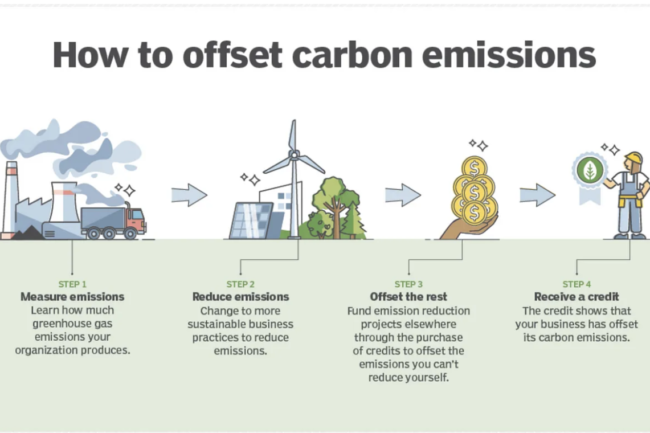Disclaimer: I categorise this article as informative. My next article will be analytical, discussing how carbon offsetting has become the next “scapegoat” for big companies to clean their hands off of their climate change guilt.
As the global focus on environmental sustainability intensifies, accurately tracking and reducing carbon emissions has become a critical priority for businesses across industries.
In this context, blockchain technology has emerged as a powerful tool that can revolutionise carbon footprint tracking and verification. By providing a transparent and auditable system, blockchain enables businesses to calculate, offset, and trade carbon emissions effectively.
The Need for Accurate Carbon Footprint Tracking
Accurate tracking of carbon emissions is essential for businesses to understand their environmental impact and identify areas for improvement. Traditional carbon footprint tracking methods often rely on self-reporting and subjective data, leading to inaccuracies and inconsistencies.
This lack of transparency and trust poses challenges for effective carbon reduction strategies and inhibits the progress towards sustainability goals. In case you aren’t familiar, you can read more about them on the United Nations website.
Blockchain technology offers a transformative solution by providing a decentralised and tamper-proof ledger where carbon emissions data can be securely stored and read from. Through it, businesses can record and verify emissions data at each stage of the supply chain, ensuring transparency and accountability.
Creating a Transparent and Auditable System
By leveraging smart contracts, businesses can automate the recording and verification of carbon emissions data. These smart contracts can be programmed to trigger specific actions, such as generating carbon credits or offsetting mechanisms, based on predefined criteria agreed between all relevant stakeholders.
It’s also common to integrate IoT devices and sensors with blockchain software, as it enables real-time data collection on energy consumption and emissions of a particular process/company. This usually means that businesses can quickly react and change practices if results don’t match the expected outcomes.
Encouraging Businesses to Reduce Environmental Impact
The potential of blockchain technology to accurately track and verify carbon emissions can encourage businesses to take proactive measures to reduce their environmental impact.
As mentioned, blockchain-based carbon footprint tracking solutions helps with corporate sustainability reporting. With accurate and verified emissions data, businesses can provide credible and transparent reports to stakeholders, including investors, customers, and regulators. This transparency not only improves the credibility of sustainability claims but also fosters trust and attracts socially responsible investment.
The tokenisation of carbon credits is a booming market and a simple search on google will return numerous startups marketplaces’ where these token can be traded in a secure and transparent manner. This creates liquidity in the carbon market, incentivising carbon reduction efforts and providing financial incentives for businesses to invest in clean technologies and sustainable practices.
* * *
Blockchain technology holds immense potential for accurately tracking and verifying carbon emissions, and is a helpful tool to report on existing areas to improve. Companies who adhere to carbon tokenisation and offsetting, proudly market their contribution to a more sustainable world.
In my next article, I’ll be discussing how we should be wary of the outer layer of “salvation” solutions that tackle much deeper issues like climate change.
Follow me if you don’t want to miss it and thanks for reading 🌱

